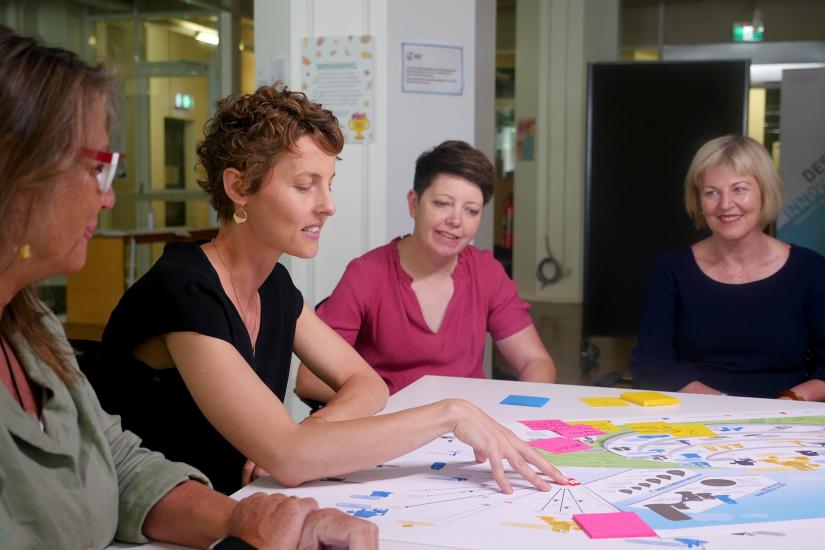An increase in domestic violence reports was one of the many grim outcomes of COVID-19 lockdowns. But while the challenge may feel intractable, a potential solution lies in an unexpected place.

Through a longstanding partnership with the Department of Communities and Justice, researchers in the UTS Designing Out Crime (DOC) initiative are exploring pandemic-related domestic violence from a multitude of perspectives. These include victim, perpetrator, children and support services.
We wanted to understand: Where were the breakdowns in services? What could be done to help with those? And also looking at the bystander approach – what could people, like neighbours, do as good citizens? – Dr Lindsay Asquith, Director and Senior Research Fellow, UTS School of Design.
To date, the project has produced a website called Dismantling Domestic Violence. It maps the challenge of domestic violence and draws together a series of projects and research evidence to help government and community stakeholders address this complex problem.
Designing for the social good
This work is a vivid example of how design can drive solutions to high-stakes social challenges. And it’s far from an outlier: over the last 12 years, the partnership between UTS Design and the Department of Communities and Justice has produced more than 200 projects designed to reduce criminal activity.
But fighting crime is about more than just enforcing the rule of law. Instead, UTS Design researchers address a wide range of social issues and their impact on organisations, communities and individuals. These include a more effective legal system, disaster preparedness and affordable housing, among others.
We don’t just work on complex crime problems; we work on complex social and service problems. We look at the whole system that underpins these services, and where you can intervene in different parts of a system, to create change. – Dr Lindsay Asquith
This focus on social and service design might be the defining feature of DOC and the broader body of research being conducted within UTS School of Design, but it also underpins UTS’s postgraduate design degrees. These include the Master of Design, which has a Service Design major; and the Graduate Certificate of Social and Service Design.
What sets these courses apart from other offerings in the marketplace is its emphasis on real-world learning that’s based on the latest research evidence. UTS researchers co-design and deliver these courses, giving students access to the concepts and collaborative methodologies that inform the school’s professional approach. Students also work on real-world case studies from UTS & industry collaborative projects.

A people-first approach to design education
Further, the course emphasises the importance of designing for people – that is, starting from the human perspective and designing for human outcomes.
A lot of service design courses around come from a UX perspective, so it’s all about technology, all about digital, and I just think people get missed in that. – Erin Beggs, student in the Graduate Certificate in Social and Service Design.
Erin doesn’t have a formal background in design– in fact, a large number of UTS postgraduate design students come from non-design backgrounds, although designers are still a prominent part of the cohort.
But as a qualitative researcher and director of service design projects with strategic data and insights consultancy The Leading Edge, Erin understands the value of service design in commercial and corporate contexts.
Increasingly, more and more of the strategic work of organisations is being conceptualised as a design problem, rather than something requiring the more traditional MBA strategy approach. Design has become more of a major organising principle. It’s a very specific way of looking at, identifying and solving business problems too. – Erin Beggs
Want to learn more about using design to lead positive change? There’s a range of new postgraduate design degrees available at UTS.
Register your interest for our next postgraduate info session

